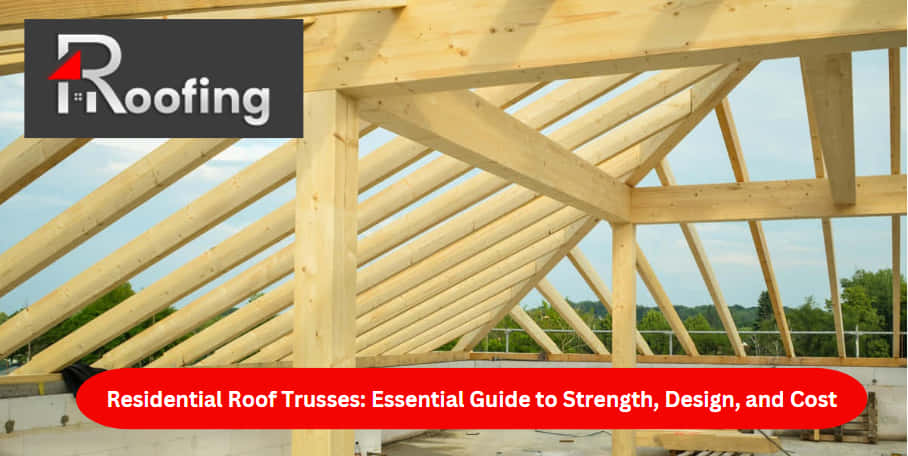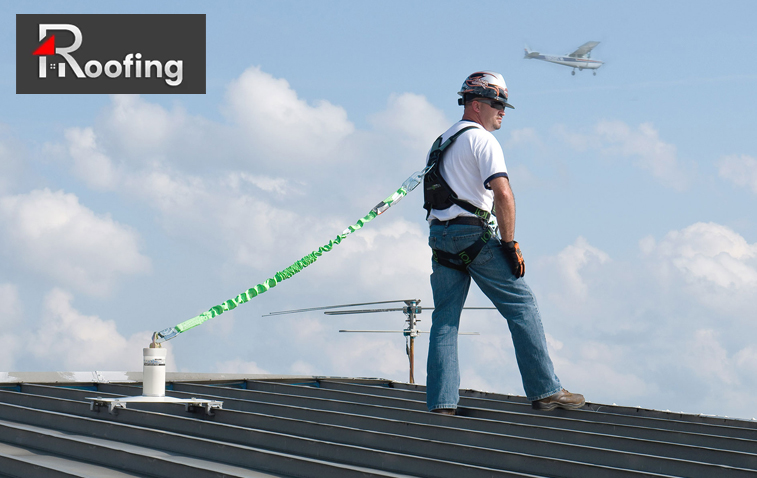When it comes to building or renovating your home, choosing the right residential roof trusses is one of the most critical decisions you’ll make. Roof trusses are the backbone of your home’s structural integrity, influencing both its durability and aesthetics. In this guide, we’ll cover everything you need to know about residential roof trusses, including their types, benefits, and essential tips to ensure a successful project.

Residential roof trusses are engineered structures that support the roof of your home. They consist of interconnected beams arranged in triangular units, distributing weight evenly and providing robust support. Unlike traditional rafters, trusses are pre-fabricated, making them faster to install and more cost-effective.
Roof trusses have become the preferred choice for modern home construction due to their versatility and efficiency. They come in various designs to accommodate different architectural styles and functional requirements, making them a crucial component in today’s residential projects.
Cost Savings: Pre-fabricated trusses are cheaper to produce and install. The reduced labor costs make them a budget-friendly option for homeowners.
Time Efficiency: Installation takes significantly less time compared to traditional rafters. This speed can help keep construction timelines on track.
Strength and Stability: Trusses provide superior structural integrity, reducing the risk of sagging or collapse. They are designed to handle diverse load conditions.
Design Flexibility: Modern residential roof truss design accommodates complex architectural styles, allowing for creative freedom in roof construction.
The king post truss is best suited for small spans and simple roof designs. It is an affordable and easy-to-install option, making it a common choice for smaller homes or sheds where the roof’s complexity is not a significant factor. The simplicity of the king post truss design makes it a practical and cost-effective solution for basic residential structures.
The queen post truss is suitable for medium-sized spans, offering more support than the king post truss. It is an ideal choice for homes with slightly larger roofs that require additional strength and stability. The queen post design provides a balance between affordability, ease of installation, and the ability to handle moderately complex roof structures.
The scissor truss is an excellent option for homes with vaulted ceilings, as it enhances the aesthetic appeal and provides an open, airy feel to the interior space. This truss design is particularly popular in modern architectural styles where optimizing the interior space is a priority. The scissor truss can create a visually striking and functional roof structure.
The attic truss is designed to create additional storage or living space in the attic, allowing homeowners to maximize the utility of their home without altering the exterior design. This truss type is an excellent choice for homes looking to add functional spaces while maintaining the overall architectural integrity of the structure.
The gable truss is a commonly used option for basic residential structures, as it provides excellent load distribution and is a go-to choice for straightforward roof designs. Its simplicity and effectiveness make it a popular selection for many homeowners seeking a reliable and uncomplicated roofing solution.
The hip truss is suitable for more complex roof designs, adding architectural sophistication to the home. This truss type is commonly seen in homes with intricate rooflines, as it can accommodate a variety of shapes and styles. The hip truss is an excellent choice for homeowners who desire a more visually striking and unique roof structure.
Pros: Cost-effective, easy to work with, and aesthetically pleasing. They are widely used in traditional home construction.
Cons: Susceptible to pests, moisture, and fire damage. Requires regular maintenance to prevent deterioration.
Pros: Durable, fire-resistant, and ideal for large spans. They provide a modern alternative for homes requiring high strength.
Cons: Higher initial cost and requires professional installation. They may not suit traditional designs as seamlessly as wood.
For homeowners deciding between wood and steel, the choice often depends on budget, climate, and design preferences. Consulting with an expert ensures the best fit for your project.
Roof trusses are manufactured off-site, reducing labor costs and construction time. This pre-fabrication ensures precision and minimizes on-site errors.
Modern truss designs improve insulation, reducing energy consumption for heating and cooling. This feature makes them eco-friendly and cost-efficient in the long run.
Their engineered design ensures uniform load distribution, increasing the lifespan of your roof. Trusses are built to handle various weather conditions, offering peace of mind to homeowners.
Trusses can be customized to match any architectural style, offering endless possibilities. Whether you prefer modern or traditional, there’s a truss design for you.
Once installed, trusses require minimal upkeep compared to other roofing solutions. This makes them a practical choice for long-term value.
Consider the following factors when choosing the right residential roof trusses for your home.
Consider the roof’s span, pitch, and load requirements when selecting truss types. A clear understanding of your needs ensures you choose the right option.
Evaluate the pros and cons of wood versus steel trusses based on your budget and climate. Wood is ideal for aesthetics, while steel excels in durability.
Engage experienced designers or structural engineers to ensure accurate specifications. Professionals help avoid costly mistakes and ensure compliance with safety standards.
Compliance with local regulations ensures safety and avoids legal complications. Always verify the requirements before beginning construction.
Opt for materials and designs that require minimal upkeep for long-term savings. This consideration is essential for maintaining the roof’s integrity.
If you plan to expand or modify your home, ensure your truss design can accommodate future changes. Flexibility in design can save costs down the road.
Attempting a DIY approach to installing roof trusses can lead to costly errors. It’s essential to seek guidance from experienced professionals to ensure the project is executed correctly and safely.
While budget is an important consideration, compromising on the quality of the roof trusses can result in expensive repairs and maintenance issues down the line. It’s crucial to find a balance between cost and long-term durability.
Ensuring the truss design matches the architectural style and functional requirements of your home is crucial. Failing to consider the compatibility can result in a roof that doesn’t integrate seamlessly with the overall aesthetic and structural needs of the property.
Proper ventilation is essential for preventing moisture buildup and prolonging the life of your roof. Overlooking this aspect can lead to issues like mold, mildew, and premature deterioration of the trusses and roofing materials.
Choosing the right residential roof trusses is crucial for building a durable, energy-efficient, and aesthetically pleasing home. By understanding the types, materials, and benefits of roof trusses, you can make informed decisions and avoid costly mistakes. Consult with experts, prioritize quality materials, and ensure compliance with local codes for a successful project. With these insights, your roof truss selection will not only enhance your home’s structural strength but also its overall value.
With proper maintenance, roof trusses can last 50 years or more.
Yes, trusses are versatile and can accommodate various roof designs and materials.
Yes, but ensure they are designed to handle the load of materials like tiles or metal.
Costs vary based on material, design, and size but typically range from $50 to $400 per truss.
Modifications require professional assessment to maintain structural integrity.
The choice depends on your needs. Wood is economical, while steel offers durability.
Regular inspections and addressing issues like pests or rust promptly can prolong their lifespan.

12 Roofing
12 Roofing brings together seasoned roofers and contractors to provide premier roofing solutions. Explore our comprehensive services and experience the exceptional quality and professionalism we offer.
Tile roofing is a classic choice for Burbank homeowners seeking […]
Have you ever imagined a roof that doesn’t just protect […]
Rain gutters plus are required in ensuring that water does […]
Speak with our in-house experts in residential roofing services for new ideas!
Copyright © 12 Roofing - 2025. All Rights Reserved.
